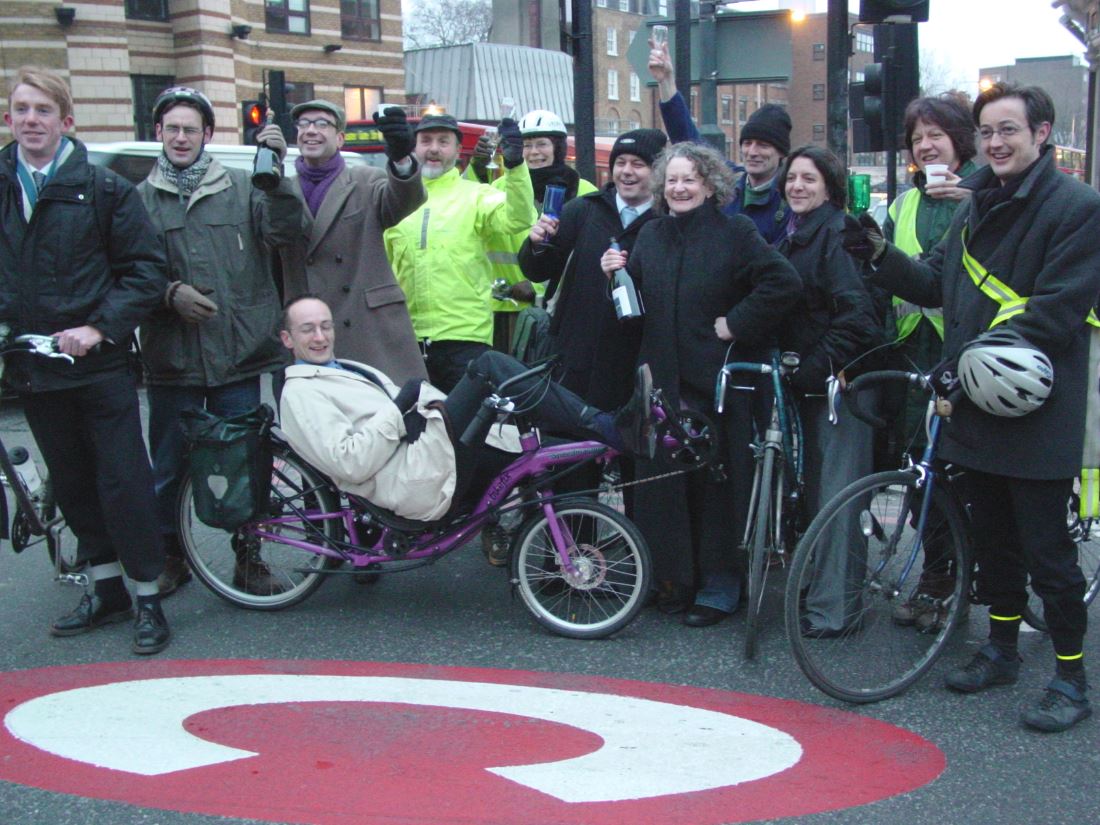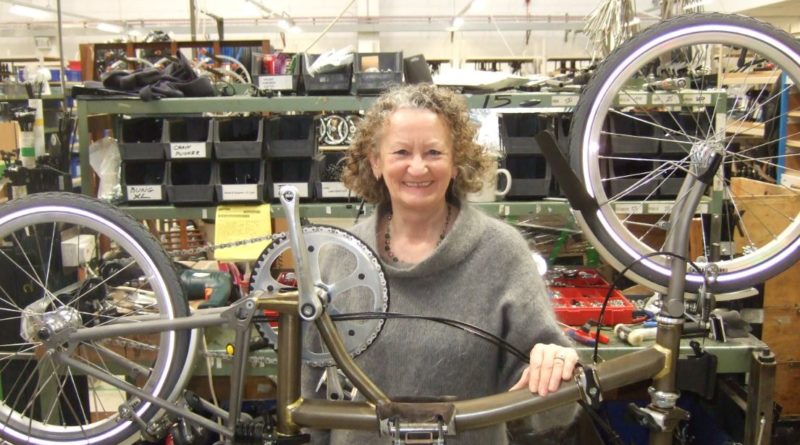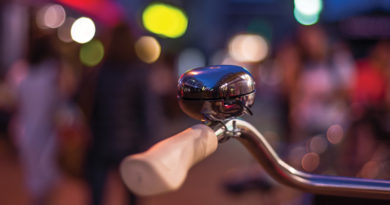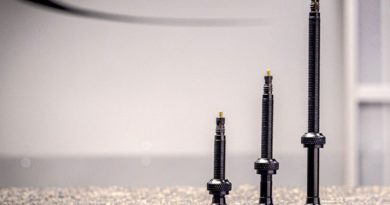Jenny Jones talks cycling’s funding shortfall and impact through protest
Having gathered the views of Labour and Conservative MPs previously, it’s time we gathered the thoughts of what one may assume to be the most natural alignment for the cycling market, The Green Party. CI.N speaks with Peer Jenny Jones on progressing the active travel agenda.
Back in December of 2019 when the Conservative Party, Labour, the Liberal Democrats and the Green Party laid out their ‘Cycling Election Manifestos’ at Brompton’s Greenford headquarters three of the four were clearly geared up for a fight on cycling. It had become a genuine policy hot potato; and why not? After all, cycling is directly relevant to everything from the health service, through transport and the economy, not to mention the broader issue of climate change politics.
The Green Party, represented at the hustings by London Assembly member Caroline Russell, went toe-to-toe with a surprisingly generous budget promise from the Labour Party on active travel, while the Lib Dems likewise pledged 10% of the transport budget on the off chance they ended up with some say in Parliament.
It is, then, not to be assumed that the Green Party will always go overboard on spend pledges to drive the kind of meaningful change arguably required to meet climate goals. In fact, the spend pledge at the time was an entirely feasible £2.5 billion annually, or around 8.6% of the transport budget at the time. For context, over the entire Parliamentary term the Conservative has pledged £2 billion in new money for cycling and walking combined.
 Jenny Jones, one of two House of Lords peers representing the Green Party believes the current spend scratches the surface and is disproportionate in the context of the wider transport spend.
Jenny Jones, one of two House of Lords peers representing the Green Party believes the current spend scratches the surface and is disproportionate in the context of the wider transport spend.
“We are well short on funding for cycling. Meanwhile we are spending billions on roads and worse, still building new ones. The evidence available shows that building more roads encourages greater vehicle use and a side effect of that is both pollution and congestion. It is madness to be speaking about millions for active travel projects, but billions for new roads.”
For Jones, cycling for transport and leisure is perceived as a fundamental right. By her own admission she comes from a poor background and was only handed a bike upon passing her 11+. “Dad cycled to work every day of his life,” she tells us. “It was a big deal to have the bikes, it was accessible transport for us.”
Crucially, the right to get from A to B safely is raised early in our conversation and a nod over the water to our European neighbours is naturally made.
“There are a few things that matter to me personally. I believe that you should not have to wear some sort of uniform to cycle, nor a helmet if you so choose, though of course it doesn’t hurt. Over in Holland where cycling is so prevalent you wear whatever you wish and cycle in safety. The key is infrastructure that gives the rider confidence to go about their business. It needs to be easy and accessible, with lanes feeding in to the main arteries.”
The hostility towards bikes, rightfully on the road, has been felt many times by Jones herself. During our call stories are recounted of Black Cab drivers hollering out of rolled down windows criticisms of clothing choice, as well as a fellow peer shouting “get out of my way, I know you hate cars.”
Jones does not hate cars, she says, albeit remains highly critical of their environmental impact. “I hate nasty drivers. Where did so many drivers get this arrogance from?”, she asks. “Jeremy Vine posts a near daily video of himself getting cut up on his bike.”
“I complain, a lot,” she says with a smile when asked what action she has taken to bring about changes for cyclists. Actions have backed up the complaints too.
“Way back I actually helped paint lines on roads designed to give cyclists space. It was technically illegal and late at night. I hope I cannot be prosecuted now! But the minute the road markings were painted on it made a difference. Many motorists gave the cyclists the space they needed for a while,” she says.
Nowadays, Jones more often than not goes through the proper channels to drive change. That said, it is notable that she stood shoulder to shoulder with the Extinction Rebellion climate movement, even succeeding in bringing and winning a judicial review on the group’s right to protest.
With the right to protest currently being eroded, Jones has strong feelings on why this channel remains a vital tool.
“The biggest impact the public can and perhaps has made comes through protests like these. Free speech is disruptive, it is the step change that can make the difference. All of a sudden since Extinction Rebellion and Gretta Thunberg’s appearance in the public eye everyone is talking about climate change. People have got the concept now, but many find it hard to extrapolate. The Conservatives can actually be good at things like the protection of rivers and trees, but they are not great at extrapolating these issues to a global understanding. It is perhaps that many Tories own large chunks of the land and so localised management is more of an issue than the bigger picture.”
No punches are pulled as we mention the Government’s Bike Repair Voucher scheme and there is an accusation that the Conservatives have mastered the gimmick to get the public on board, but fall short of follow through on many issues.
“There are ideas and schemes aplenty. The Eat Out to Help Out offering, for example. There’s no broad plan and certainly not a funded one,” says Jones. “With spectacularly low interest rates there is money to spend, the various road and airport schemes show that.”
Aligning thinking with fellow All Party Parliamentary Cycling and Walking Group member and co-chair Selaine Saxby, CI.N’s last political interview, it is suggested that not all meaningful change requires bucket loads of cash (though it certainly helps).
For Jones, the Low Traffic Neighbourhood schemes have been an eye opener to how incremental changes can have a broad impact.
“The minute you add Low Traffic Neighbourhoods change is noticeable, but numerous benefits are not immediately seen. If you close the roads with planters it’s good for bringing bees back and giving kids the opportunity to play in the street, as they should feel safe to do. They can bike to school far easier with traffic calming too. Small changes can have spin off benefits. This is the way we’d would like to keep thing moving things forward until such a time the big changes can be made.”
It hasn’t escaped Jones’ attention that seemingly minor adjustments for the purpose of prioritising people on the streets have been met with stiff resistance.
“I have seen the case in Kensington where a promising cycle lane was removed only on complaints from famous residents and taxis drivers (an appeal was last night rejected). In a word, it’s stupid. Bike lanes naturally discourage car reliance and it is important to begin the process of trialling alternatives. Ken Livingstone understood that a carrot and stick incentive could work, but it was the buses that benefitted most. You have to make it easy for people by creating an entire end-to-end infrastructure; that’s lights that let cyclists through, reductions of pinch points where incidents are known to happen and more parking at destinations and hubs. To enable multi-modal transport trains could do a lot more to let more bikes on. The more I talk about it, the more I realise the pace of change is just too slow.”
There is clear disappointment felt, but a willing to push the subject in the chambers with the right evidence to support calls. In order to make a coherent case that is likely to get airtime Jones asks of the cycling industry that the work our campaign groups do is logged and evidence collected to back the many-fold direct and indirect positives attached to cycling.
 “I cannot take questions from individuals as there simply aren’t the hours in the day and pitching to the chamber actually has a cost of several hundred pounds attributed, but I am keen that cycling campaign groups keep in touch with their findings. We are just two Greens out of 800 in the Lords, so naturally our time is often devoted to subjects such as policing or the environment. What that means is that when we raise our hands the questions asked must be of a high quality and well researched. Each department affected by the question must be notified when pitching in order to carry out proper research, so for cycling that’s transport, health and others,” Jenny explains.
“I cannot take questions from individuals as there simply aren’t the hours in the day and pitching to the chamber actually has a cost of several hundred pounds attributed, but I am keen that cycling campaign groups keep in touch with their findings. We are just two Greens out of 800 in the Lords, so naturally our time is often devoted to subjects such as policing or the environment. What that means is that when we raise our hands the questions asked must be of a high quality and well researched. Each department affected by the question must be notified when pitching in order to carry out proper research, so for cycling that’s transport, health and others,” Jenny explains.
Ultimately the peers’ other work on environmental causes is likely to have a benefit on active travel, with air quality a subject that crops up in conversation a handful of times, alongside the wider discussions on burning fossil fuels. Jones describes the pollution issue as an “illness of poverty”, refencing studies that show the poorest as so often the ones trapped in the most polluted neighbour- hoods. Naturally, this is an area where those subtle changes like LTNs can make a meaningful difference.
We sign off by asking whether, in the face of widespread opposition from Conservatives, Boris Johnson’s reported fondness of cycling could ultimately see resistance over-ridden.
“Boris has zero physical fear, so I can’t badge him as an ordinary cyclist, he just tends to bulldoze through and so I don’t know if the bike lanes made much difference to his personal experience of cycling. He can take some credit for introducing many bike lanes, while Sadiq Khan has put too many on hold during his term as mayor.
“I don’t understand why the Conservatives don’t see active travel as a broad solution to the health of communities. The more people outside of cars the better air quality and we certainly must stop motors idling outside of schools, that is horrendous. We have got to get our heads round the idea we cannot keep burning fossil fuels. Are EVs consuming fossil fuel-based electricity the answer? I don’t think so.”
Following Jenny Jones’ interview CI.N will shortly check in with Liberal Democrat peer Liz Barker. You will be able to catch that first upon the publication of our next magazine.



